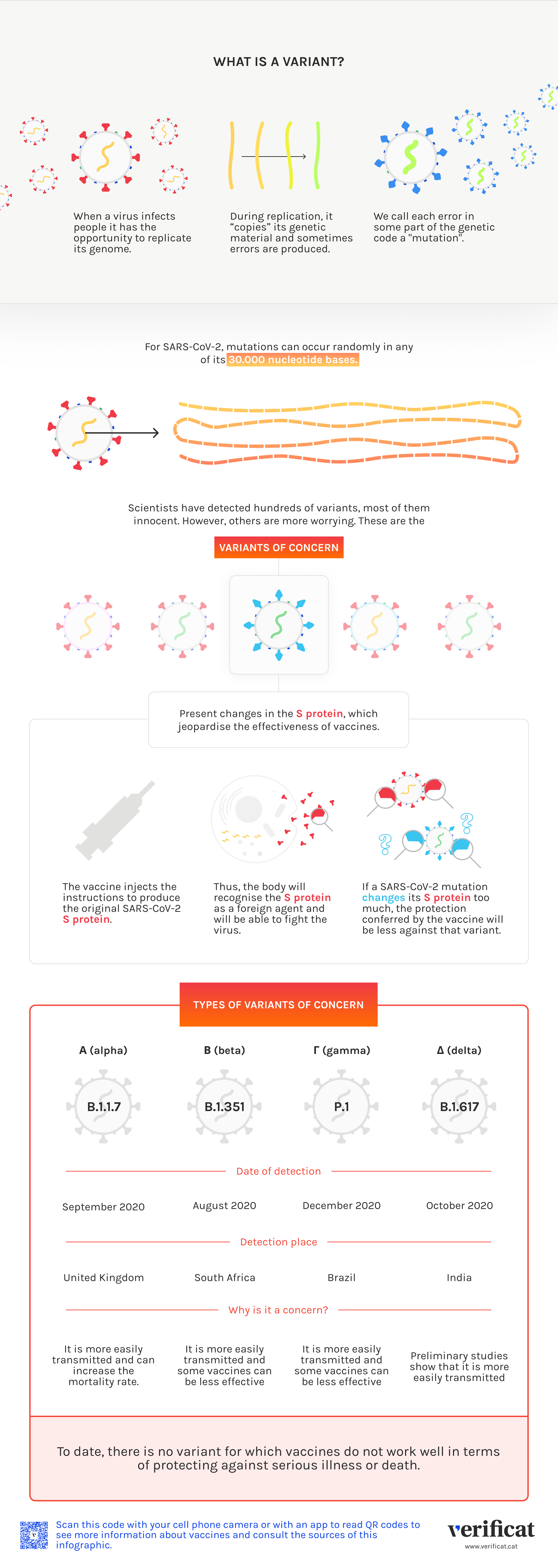Vaccinating more people is not going necessarily to promote the proliferation of more virulent variants
While such a phenomenon may occur in certain contexts, the fact that the vaccine reduces transmission of the virus also reduces the likelihood of this happening

The portal Latin American Information Agency (ALAINET) has published a paper with the arguments of Geert Vanden Bossche, a German virologist who in the past worked for the the Vaccine Alliance (GAVI) and the Bill & Melinda Gates Foundation, questioning the massive vaccination campaign that is taking place all over the world. Specifically, Vanden Bossche affirms that a larger vaccination will involve a higher virus infectiousness, causing an increase in “the possibility of viral resistance to vaccines”: while such a phenomenon may occur in certain contexts, the fact that the vaccine reduces transmission of the virus also reduces the likelihood of this happening.
"The more we use vaccines to immunise people in the midst of a pandemic, the more infectious the virus will become”, points out the scientist. In turn, a more infectious virus: “Increases the likelihood of viral resistance to vaccines"
According to the article, the virologist insists that there exists a directly proportional relation between the amount of administered vaccines and the emergence of more infectious variants, and that this, in turn, “increases the likelihood of viral resistance to vaccines”. Although the phenomenon can occur in given contexts, the fact that the vaccine reduces the transmission of the virus also reduces the likelihood of this happening.
"At the individual level, there is a risk of variants emerging when the immune system fails to get rid of the virus and it can continue to replicate in the body for some time," Adelaida Sarukhan, an immunologist and scientific writer at the Institute for Global Health (ISGlobal, in Catalan) in Barcelona, tells Verificat.

In fact, several studies suggest that some of the variants could have been emerged from immunocompromised patients in which the infection lasted for several months, and who were treated with convalescent plasma: “The antibodies in the plasma could not remove the virus but indeed causing a selection pressure over the virus, which accumulated mutations able to escape of such antibodies”, she concludes.
Vaccines have been precisely shown to protect not only from the disease, but also from infection, and thus, can help reduce the virus transmission throughout the population. “The less the virus is transmitted, the less it replicates and mutates. Hence the importance of vaccinating the maximum number of people (to avoid sub-optimal levels of antibodies) with the full regimen, and in the shortest possible time”, she concludes.
The more immunity, the more pressure
One has to recall that this phenomenon occurs when the population immunity increases, whether through natural infection or through vaccinations: “The more immunity there is in the population, the more selective pressure there will be on the virus, and the more likely it is that those viruses with mutations that evade this immunity will be the ones that can replicate and transmit", Adelaida Sarukhan, immunologist and scientific writer at the Institute for Global Health (ISGlobal) in Barcelona, told Verificat.
In the case of the injections against covid-19 it is also being observed that, without being previously designed with the aim to stop transmission, they indeed achieve this effect. Hence, “the likelihood of the virus to continue mutating and more dangerous variants emerging” is reduced, Sarukhan reasons, concluding that “the best way to reduce the risk of more vaccine-resistant variants is to vaccinate as many people as possible, as quickly as possible”.